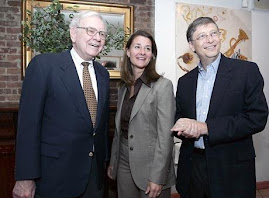Perceptual PositionsIn NLP, perceptual position is a process (a men
t
a

l technique) whereby you mentally review (or preview) a situation from a number of different positions (or point of views) in order to enrich your appreciation of what is involved. The use of perceptual position:
- Improves your understanding of other people.
- To take a step back and consider issues.
- Helps you appreciate the influence of your verbal and non-verbal behaviour on others, and the influence of their behaviour on you.
To do this, first identify a past event that you have a serious relationship problem. You are, and must, be willing to let it go. Then mark 3 positions on the floor - position 1 represent's client himself, position 2 represnt the third party and position 3 represent a coach/consultant. Let’s assume that you are the coach/consultant and you are doing perceptual position with a client.
Step 1:
- Briefly discuss on this issue with client and identify the third party involved in this situation.
Step 2:
- Get client into position 1 and fully associate with his/her own feeling, viewpoint, experience etc.
- Ask client questions like “how do you feel”, “what is your highest intention”, “what’s your opinion of the third party”, “why is he/she acting in this way” etc etc?
Step 3:
- Step out of position 1 and break state (ask any irrelevant question or remark).
- “What did you have for breakfast”.
Step 4:
- Get client into position 2 and fully associate into the other party’s feeling, viewpoint, experience etc.
- Ask client questions like “how do you feel”, “what is happening”, “what is your highest intention”, “what’s your opinion of the you in position 1”?
Step 5:
- Step out of position 2 and break state (ask any irrelevant question or remark).
- “Sorry I need a toilet break”.
Step 6:
- Get client into position 3 and fully associate into a consultant/coach.
- Ask client questions like “how do you feel the “you” in position 1 & 2”, “what are the differences in behaviours and intention”, “what are the values you can draw to address the problem”, “what more can be done to improve relationship”?
Step 7:
- Step out of position 3 and break state (ask any irrelevant question or remark).
Step 8:
- Get into position 1 again and ask how well can client handle the situation now.
Step 9:
- Get into position 2 again and ask how well can client handle the situation now.
Note again that NLP is more an art than science. So you actually can find other NLP coaches with slightly different procedure. Some come with position 4 whilst others recommend to go through the cycle 2 times.
What I am about to say next is a matter of my opinion. Firstly, the whole processes may look profound but is very simple – just try to put yourself into someone else’s shoe. And many of us could be actually doing it most of the time (without going through the steps above) by being understanding. In my opinion, perceptual positions can only be used under certain circumstances. E.g. you can’t do this to a lady who had been raped, or someone who had been cheated by his/her friend in a business deal or a wife been constantly abused by her husband. Also note that perceptual position requires you to “associate into the thinking/behaviour/intention” of the third party. A person simply cannot try to perceive the behaviour/intention of the third party through his/her own very brain especially when the third party has a downright ill intention.
Therefore, in my opinion, perceptual position is used in a normal situation of mis-understanding. And actually anyone can do it without going through the steps above – by taking a deep breathe and do self-reflection on the whole issue assuming that that person is open and willing to mend the relationship.
…….. to be continue


















